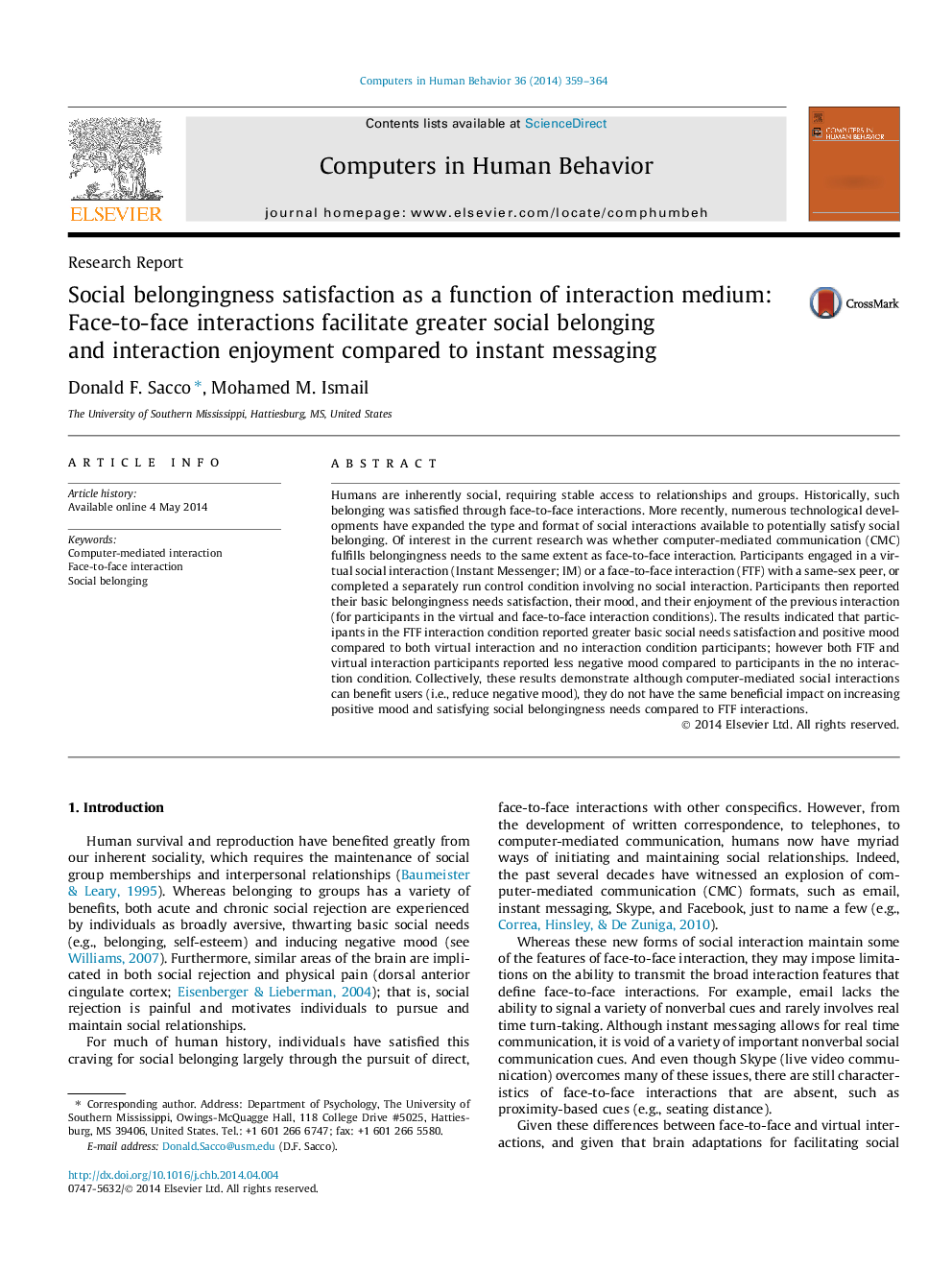| کد مقاله | کد نشریه | سال انتشار | مقاله انگلیسی | نسخه تمام متن |
|---|---|---|---|---|
| 350781 | 618457 | 2014 | 6 صفحه PDF | دانلود رایگان |
• Participants assigned to face-to-face (FTF), virtual, or no interaction condition.
• Participants indicated basic social needs (BN) satisfaction and mood.
• FTF and virtual interactions reduced negative mood compared to no interaction.
• FTF interaction satisfied BN and positive mood more than other two conditions.
Humans are inherently social, requiring stable access to relationships and groups. Historically, such belonging was satisfied through face-to-face interactions. More recently, numerous technological developments have expanded the type and format of social interactions available to potentially satisfy social belonging. Of interest in the current research was whether computer-mediated communication (CMC) fulfills belongingness needs to the same extent as face-to-face interaction. Participants engaged in a virtual social interaction (Instant Messenger; IM) or a face-to-face interaction (FTF) with a same-sex peer, or completed a separately run control condition involving no social interaction. Participants then reported their basic belongingness needs satisfaction, their mood, and their enjoyment of the previous interaction (for participants in the virtual and face-to-face interaction conditions). The results indicated that participants in the FTF interaction condition reported greater basic social needs satisfaction and positive mood compared to both virtual interaction and no interaction condition participants; however both FTF and virtual interaction participants reported less negative mood compared to participants in the no interaction condition. Collectively, these results demonstrate although computer-mediated social interactions can benefit users (i.e., reduce negative mood), they do not have the same beneficial impact on increasing positive mood and satisfying social belongingness needs compared to FTF interactions.
Journal: Computers in Human Behavior - Volume 36, July 2014, Pages 359–364
